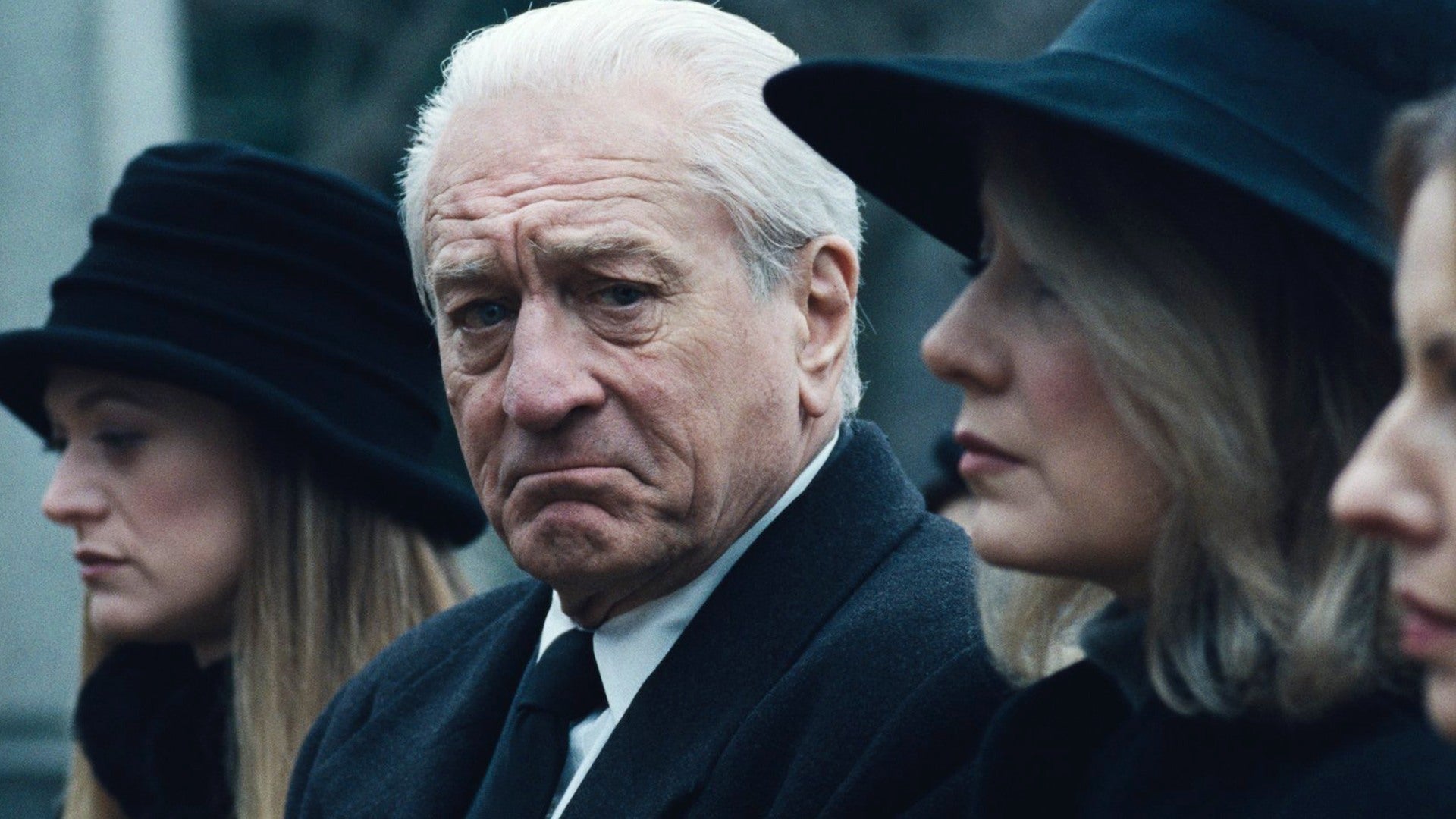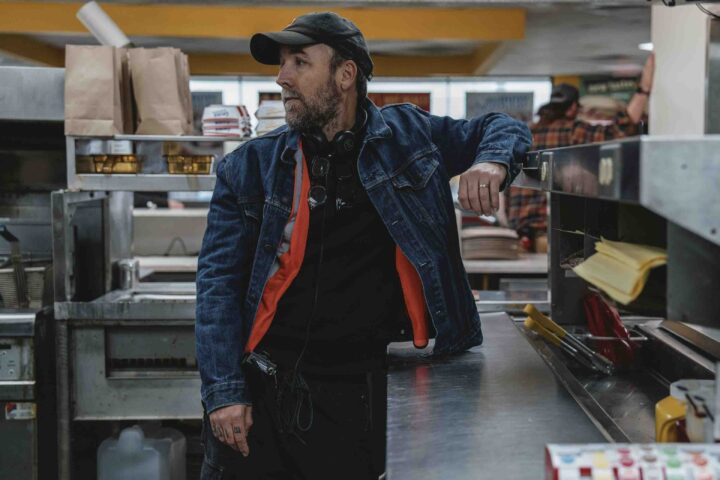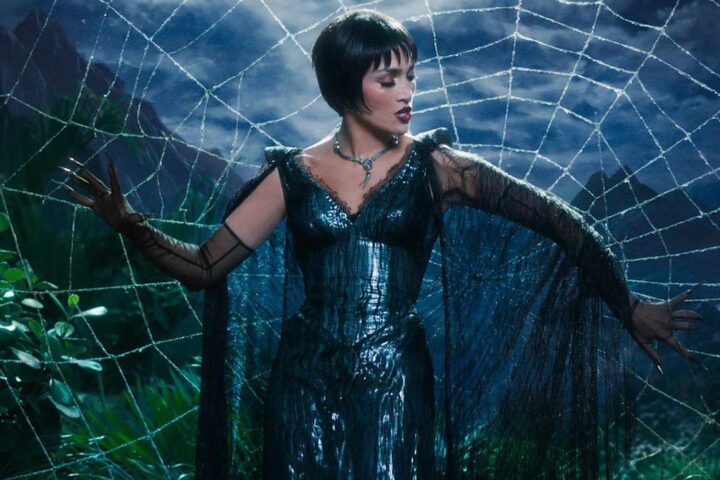If Martin Scorsese never makes another mob picture (at least in the formal sense), his new magnum opus, The Irishman, might possibly be the final movie word on the subject. Certainly amongst the finest in an oeuvre that includes masterworks like Goodfellas and The Departed, and perhaps his most comprehensive, it plays like a summation of a genre, if not a career capper.
Despite a diverse directorial canon of more than 30 pictures (of which mafia pictures number a mere few), Scorsese is sometimes reductively narrowcast as synonymous with the topic because, like Francis Ford Coppola, their mob pictures are definitive, American epics. One might wonder what new insights Scorsese could possibly mine from The Irishman, a 3.5 hour epic of crime and punishment, honor among thieves, organized labor, political power plays and codes of loyalty amongst hardened men’s men.
The picture certainly has all of that and more, but this time Scorsese and company offer an unexpectedly poignant, deeply contemplative perspective on the ultimate, and high, costs of such a life for those who live long enough to look back, likely with great regret.
The focus of The Irishman is real-life mobster Frank Sheeran (a for-the-books Robert De Niro performance), noted hit man, Teamster and eventual best friend to Jimmy Hoffa (Al Pacino), who in 2003 offered a deathbed account of the powerful labor leader’s final moments. And while the decades-spanning epic, adapted by Oscar-winner Steven Zaillian (Schindler’s List) from Charles Brandt’s book I Heard You Paint Houses, doesn’t question Sheeran’s reliability as a narrator, it hardly matters as Scorsese is unconcerned with procedural.
Instead, The Irishman is meditation on time, loss and facing the final hours alone. As the final analysis unspools, Frank’s friends have passed, children gone their own ways and while he’s survived the most dangerous of vocations and awaits a peaceful death of natural causes, he faces a solitary personal and spiritual crisis.
It’s tremendously affecting in ways we may not always regard the filmmaker’s works (though we need only look to Alice Doesn’t Live Here Anymore or The Age of Innocence to be proven wrong), or perhaps just his tough guy outings with similarly celebrated male ensembles. And what an ensemble it is, Scorsese reassembling faithful collaborators De Niro, Pacino, Joe Pesci, Harvey Keitel, and new faces including Bobby Cannavale and Ray Romano. Such company onscreen would be worth admission to any movie. But seeing them back in this milieu? Priceless.
The picture’s framing device plays as a sort of remembrance of a life, DeNiro’s octogenarian title character Sheeran confined to a wheelchair in a retirement home recounting, from memory, flashbacks to key milestones. The picture shuttles across eras and Frank’s recollections on a collection of mobsters, Teamsters and politicians whose worlds both overlap and collide.
Frank’s memories reveal a stint in World War II, another as on-the-take truck driver who becomes an inadvertent mob hit man and eventually, in the picture’s rewarding second half, one who develops a deep ties friendship with Hoffa, played with absolute relish by Al Pacino, and a Teamster himself.
One can’t overstate the thrill of watching this pair of master American actors buddy up against such a volatile backdrop, reunited onscreen 24 years after their mano-a-mano in Michael Mann’s seminal, 1995 crime epic Heat. The pair’s late scenes together, when Sheeran has a mob mandate to get Hoffa under control, are simply some of the best acted this year.
Special mention goes to a marvelous Joe Pesci as mobster Russell Bufalino, indoctrinating Sheeran into the syndicate and becoming a family friend and mentor whose very presence unnerves Sheeran’s youngest daughter, Peggy (Lucy Gallina), who senses her “uncle’s” influence on her father is simply no good, including a seminal childhood episode where she witnessed her father’s brutal beatdown of a local grocer. Pesci has an uncanny knack for conveying fraternal warmth and insidious menace, sometimes emanating from the same, subtle smile. Alienated, adult Peggy, well-played by a pained Anna Paquin, serves as the crux of Frank’s final reckoning.
Seeing De Niro, Scorsese’s first go-to lead before his latter day work with DiCaprio, back in a Scorsese film evokes bygone blues for a movie era past where their muscular collaborations in Taxi Driver and Raging Bull defined both and, to some extent, an era of American movie artistry.
De Niro, the titan of America actors, is powerful in ways we expect—the two fisted, single-barreled, tough talking fixer—and then in ways that sneak up in the final moments, as when he clings to a handful of faded, B&W photos of his children and friend Hoffa, equally proud. Their ghosts loom over Frank’s final days, his wayward children no more material than the specter of his deceased friend. The picture’s last moment, with a door half open, is a real heartbreaker.
Scorsese’s recent remarks expressing disdain for technology-laden superhero movies are on their way to legend, and ironically here he employs cutting edge technology to a radically different end, notably the much-discussed “de-aging” of the principal actors rather than casting younger actors to depict their youth. Visually, this takes some getting used to, but is mostly convincing. More importantly, over the picture’s eras it conveys a sense of sweep, as entire lives pass before our eyes.
One of Scorsese’s cleverest touches in The Irishman is the addition of a future, mini obituaries that flash upon the screen each time we meet a new mafia member. It’s funny until it’s not, and those who don’t end up dead by a bullet end up in prison, and then dead, with no clean getaway.
“It’s what it is,” the mob declares when a hit is about to go down. For last man standing Sheeran, it’s a cold stare into the void.
4 stars.



